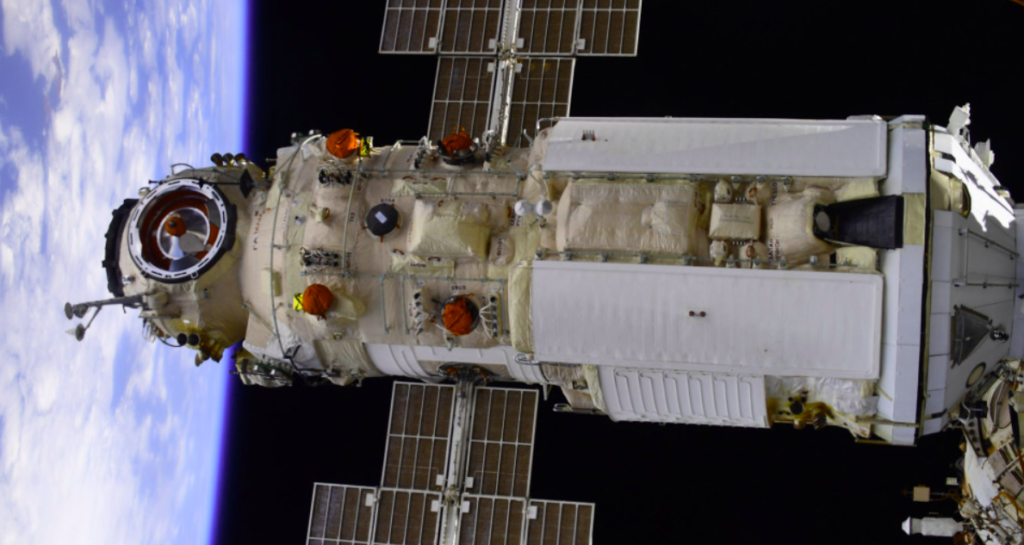
Though the aging laboratory will eventually be abandoned, the International Space Station (ISS) has served as humanity’s only permanent outpost in space for many years. The installation will be closed by the end of the decade, according to the stakeholders, but it will be difficult to keep everything operational until then. A Russian component has leaked coolant three times in a year. This additional setback may postpone planned operations and add to the already stressful workload for the already overburdened crew.
On October 9, flight controllers saw an alarm in the Multipurpose Laboratory Module (MLM), also referred to as Nauka (see above), which led them to find the most recent leak. NASA astronaut Jasmin Moghbeli observed firsthand that one of the module’s two radiators was actively leaking ammonia into space surrounding the station after learning about the problem.
One of the station’s newest sections is Nauka. Originally scheduled to launch in 2007, this module provides 2,860 cu ft (80.9 cu meters) of livable capacity. Russia eventually deployed the component in July 2021, following several delays. It’s interesting to note that this occurred only eight weeks prior to the launch of the Soyuz MS-22, which also experienced serious radiator problems.
The leak that occurred in late 2022 on a Russian Soyuz capsule was not as significant as this one. The MS-22 spacecraft was unable to return the crew to Earth in the scheduled manner due to that mishap. Because of this, a number of astronauts and cosmonauts were compelled to stay aboard the station longer while Roscosmos prepared a second Soyuz spacecraft. A Russian Progress car that had sprung a coolant leak in February 2023 came next.
Following the two radiator leaks, there were worries that Roscosmos might continue to experience manufacturing problems. Nonetheless, the government asserted that collisions with space debris and micrometeoroids was the cause of both breaches. NASA agreed to such interpretation because there was insufficient data to support it. On Russian hardware, though, a third coolant system failure in less than a year is a concerning pattern.
According to Space News, NASA has scheduled two spacewalks for this month. It’s unclear if those activities will be canceled or delayed as a result of the Nauka leak. In order to fix the leaky radiator, the crew may have to put spacewalks last, depending on how bad the damage is. Nauka’s primary temperature control system is still operational, according to Roscosmos, and neither the crew nor the station are in immediate danger.